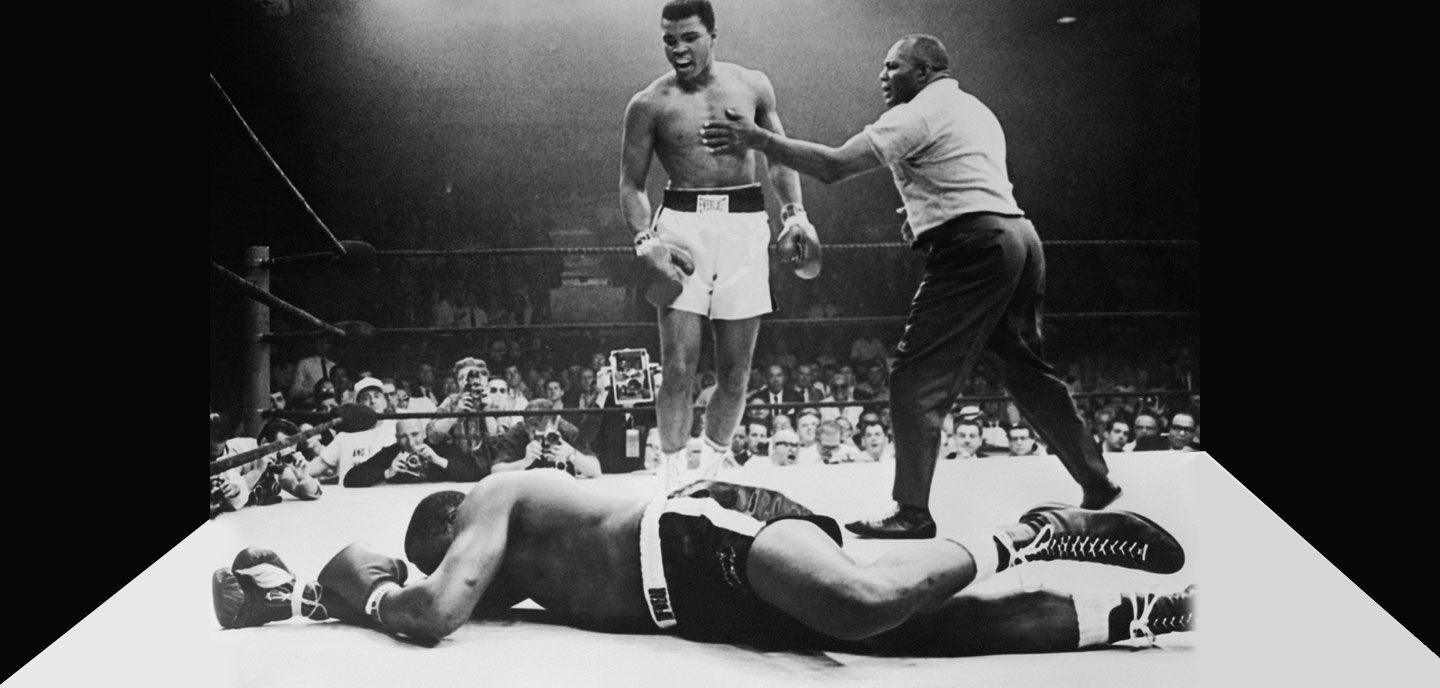Muhammed Ali.
“The Greatest,” as he called himself and many have willingly referenced him, passed away last week.
Of the billions of words being used to describe him since his death, four will do for me—He made a difference.
Muhammad Ali was an icon, a humanitarian, a legend, an activist, a spokesperson and a global change agent in the category of Nelson Mandela. Few others rivaled his popularity and influence. His face has been recognized around the world for decades.
Childhood Idol
I remember being drawn to Ali as a kid.
My memories include the “Thrilla in Manila” against Frazier, the “Rumble in the Jungle” against Foreman in Zaire and the painful, agonizing loss to Holmes in 1980.
One of my little kid recollections was staying up late into the night to get radio reports of a Frazier/Ali fight. There was no live television or radio in this pre-ESPN era, but there were radio updates after every round. I was glued. It was worth the late night. Ali won.
I remember in the late 1960s writing on the cover of my seventh grade English book. Only two things—both best in class—were written on the cover. UCLA and Ali were plastered all over the front of my book. They were, hands down, my favorites.
Ali made a difference by being a supreme fighter in the ring, but his life outside the ring actually puts far more color on the canvas of his “greatness.”
Get our "Top Articles" sent to your inbox weekly.
Greatness Equals Convictions Lived
The man had convictions. His religious beliefs led him to be a conscientious objector to military service during the Vietnam War. His conviction cost him three years of boxing in the prime of his prime.
What athlete today would hold to a conviction that would take them out of their sport and prime years of revenue generation and brand recognition for three years? Can you name just one?
Convictions like that made Ali a polarizing figure. While some revered him, many reviled him for his draft dodging. Just ask any family who lost a beloved soldier in the Vietnam War what they think of Ali’s conviction. Yet he stood by it.
But his convictions also led him to humanitarian efforts like meeting with Saddam Hussein in 1990 and helping to negotiate the eventual freedom of fourteen American hostages in Iraq.
Like no other athlete before him, Ali used the platform of sport to share his life, his convictions and his Islamic religion.
I remember seeing him at the Super Bowl in Minneapolis in 1992. A small entourage of people escorted him through a crowd of people.
Ali, visibly shaking due to the effect of Parkinson’s, was passing out Islamic literature. The disease had taken away his physical voice, but not his conviction to spread this word.
Greatness Equals Leveraging Sport Platform to Serve Others
The boxing ring was the place where we met Ali. That canvas became the platform for his convictions to be shared with the world. In many ways, Ali modeled for other athletes the powerful platform of sport.
His legacy includes many, many other athletes who have leveraged success on the field, in the ring, on the court, in the pool and on the pitch to share their beliefs and influence a broad audience.
Ali leveraged his sport platform to serve others.
Time magazine recounted Ali’s ability to use what he was given to bless others after a bout with George Foreman: “Three hours after a victory that bolstered his status as the most celebrated athlete, if not the most famous person, on the planet, a beaming Ali was spotted on a Zaire stoop, showing magic tricks to African children.”
At one point in his life Ali was quoted as saying, “Service to others is the rent you pay for the room here on earth.”
Meditation on True Greatness
Ali’s life leaves me thinking, once again, about greatness. Who is truly great these days? How do you talk about “the greatest”? Who sets the criteria? How do you even engage in the conversation?
Think about how talk show hosts, columnists and writers have such a field day with these questions!
Are the 2015-2016 Golden State Warriors the greatest professional basketball team of all time?
Who is the greatest quarterback of all time? Unitas? Montana? Brady?
The arguments will continue as long as we play, watch, and follow sports. But the debate about what constitutes “greatness” in life is hardly new and hardly reserved for the sport world.
Greatness in the Bible is clearly defined. The very first prayer I ever learned as a kid is loaded with theological truth about greatness: “God is great, God is good. Let us thank him for our food.”
A simple search through a concordance will reveal that God calls Himself “great” in multiple places through the Old and New Testament. Since God has no rivals, the case is settled. God, and God alone, is not only Great, but He is “the Greatest.”
Interestingly, the Bible actually leaves room for you and me to be great. In two different accounts in the Bible (Mark 9:33-37 and Luke 9:46-50), Jesus spoke into an argument that his followers were having about this very subject.
As His followers talked about greatness and who among them was the greatest—the context suggests power, position and authority—Jesus talked to His disciples about greatness in terms of being least, being last, serving others and welcoming and yielding their lives to the One who sent Jesus.
That is really upside down from our world today. The values and the message of our world invite us to strive for position, power, prestige, authority and superiority, and “greatness” comes when we achieve certain milestones along this path.
As was so often the case, Jesus’s value system was completely reversed. He invites us to pursue a path of greatness, marked by service to others through a child-like humility of heart.
And that is only truly developed when the God of the universe—”the Greatest”—is invited into and takes command of our lives.
Ali made a difference. There is much to admire about the man.
But at his best, Ali was an imperfect picture of greatness that only hints at the very best picture of true greatness found in Christ.
A life well-lived does that hinting well, and Ali will rightly be remembered not only for what he gave as a champion inside the ring, but also a servant of people outside it.














